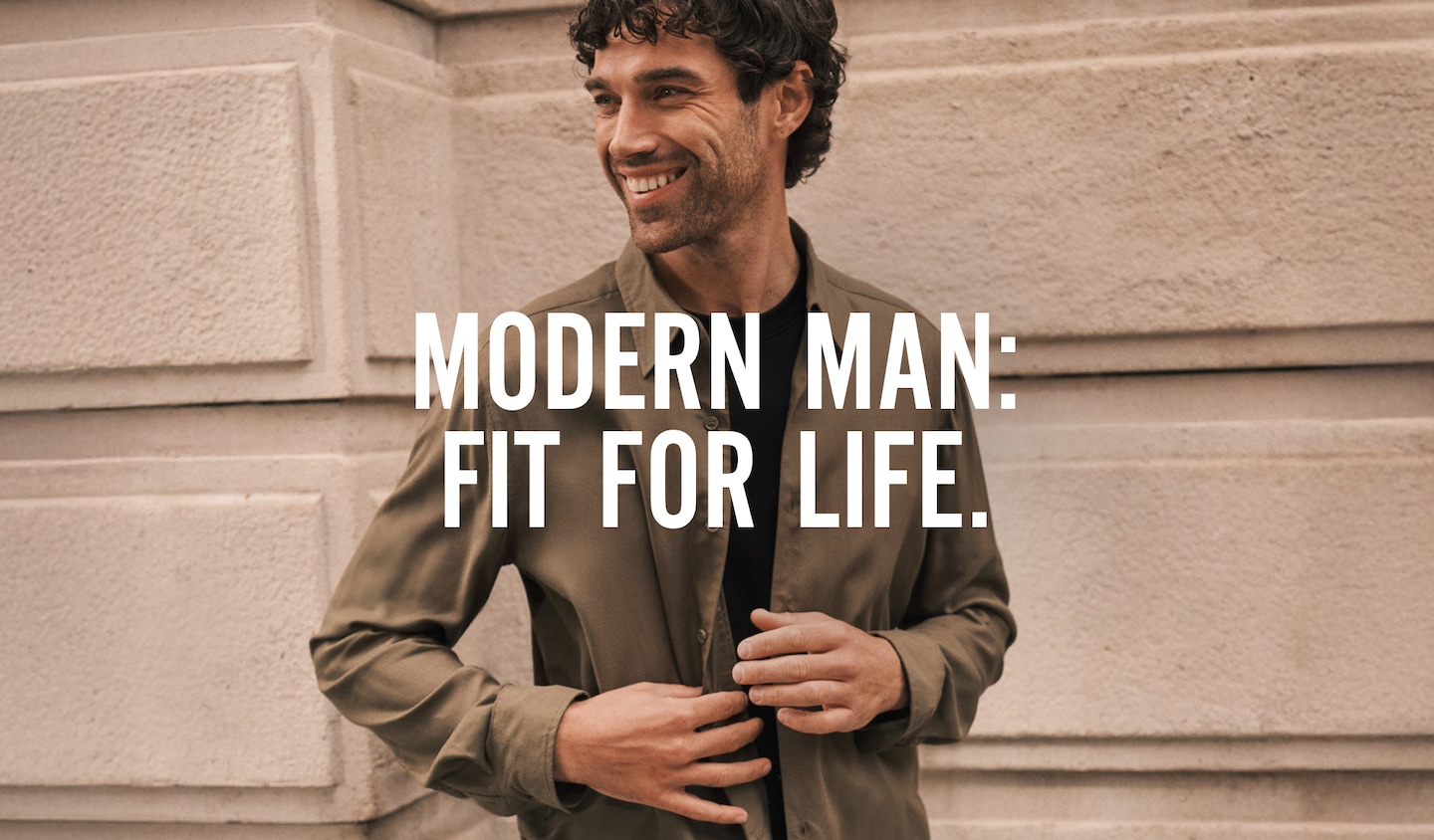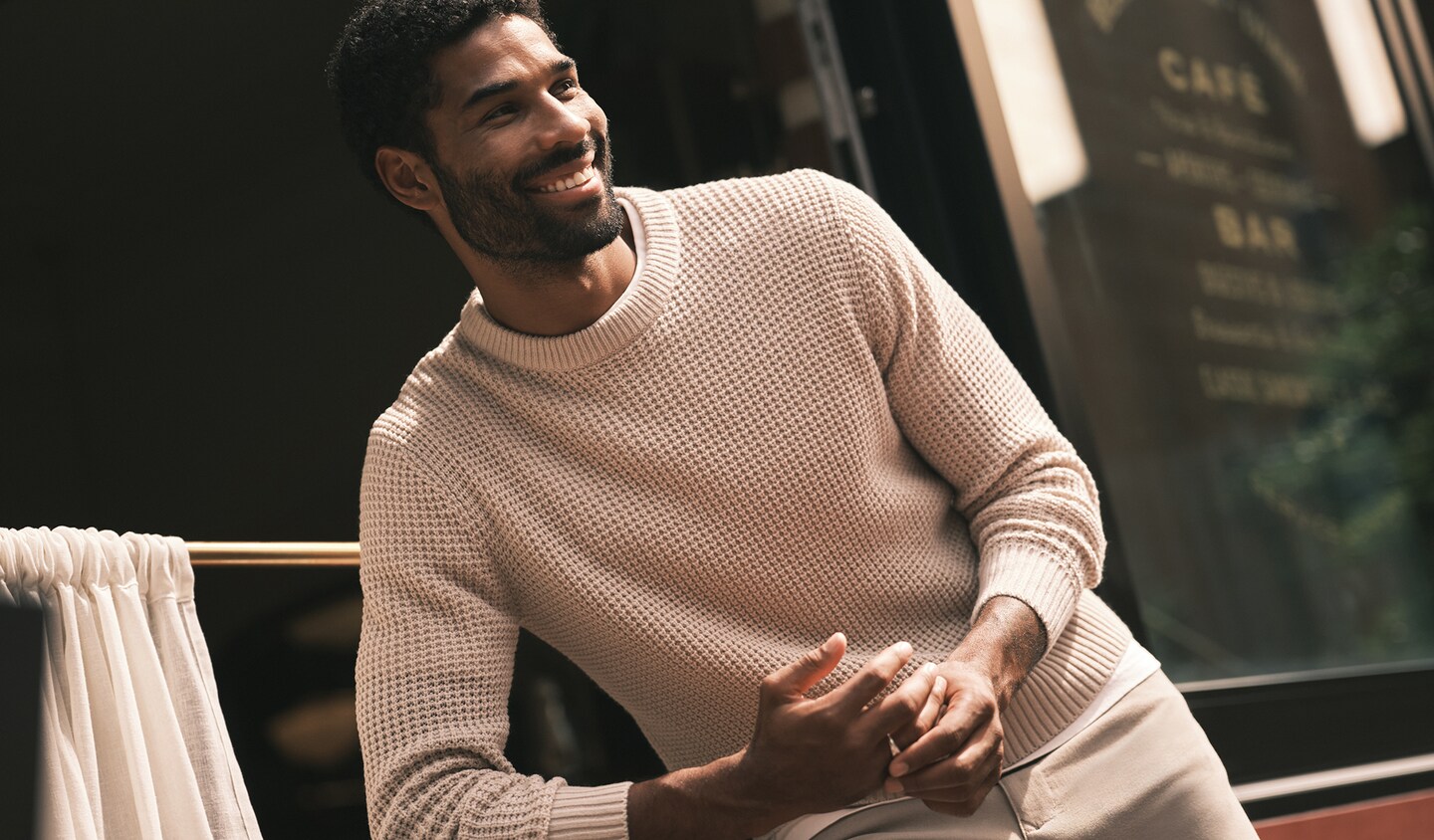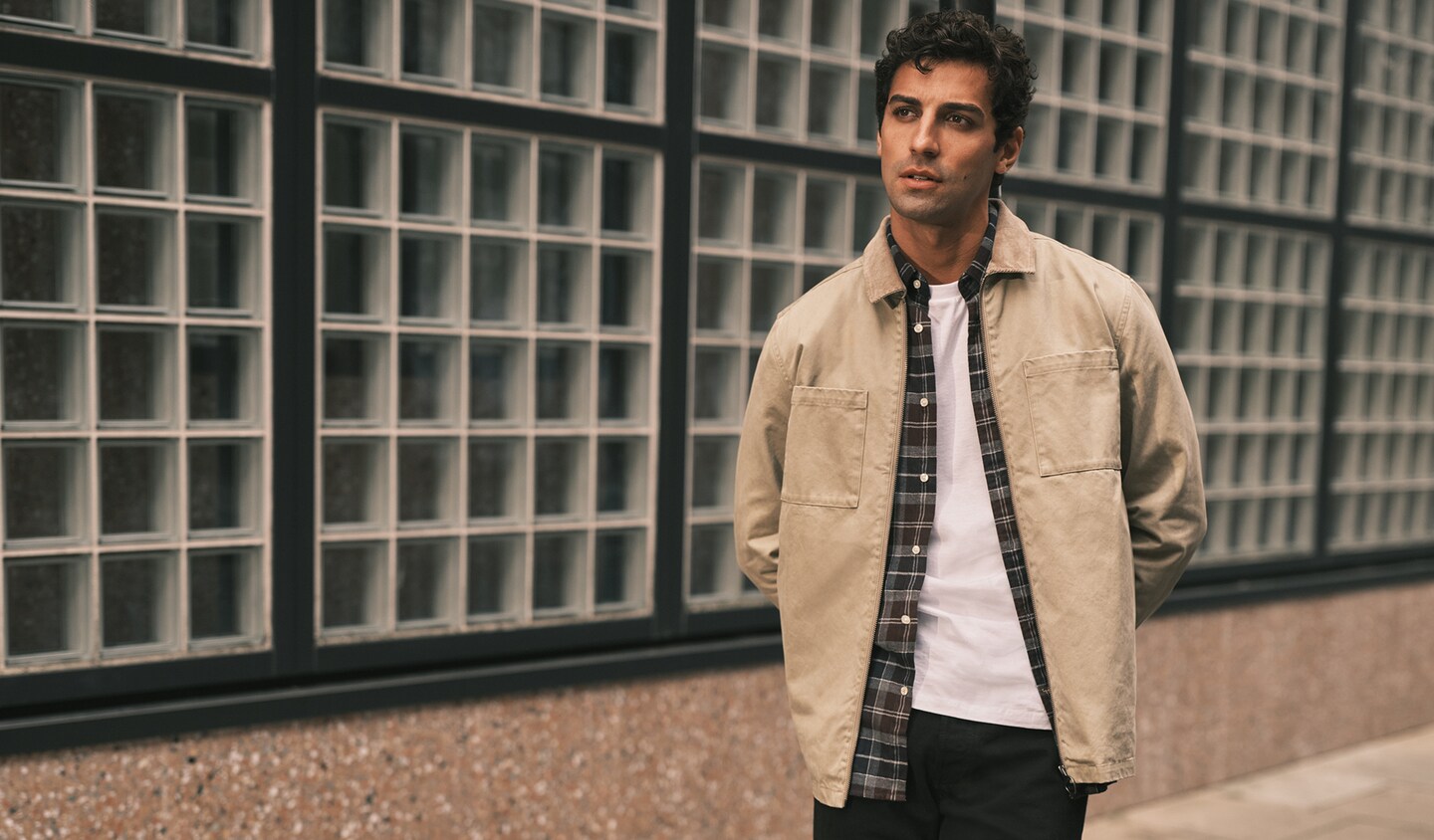MODERN MAN: FIT FOR LIFE.

Modern masculinity isn’t one-size-fits-all. Confidence, wellbeing, and style look different for every man, and that’s exactly how it should be. We surveyed men across the UK to understand how confidence changes throughout their lives, what impacts their mental health, and what spaces make men feel stronger.
Alongside the numbers, we spoke to wellbeing specialist Tommy Hatto, and parenting expert Kirsty Ketley, to understand what these findings mean for real life.
Whether it’s a sharp jacket that helps you walk into a big moment with confidence, the right jeans for everyday comfort, or even smart tech that keeps you switched on and connected, it’s time to tailor modern masculinity to the man you are.

HOW CONFIDENT MEN FEEL IN THEIR OWN APPEARANCE


The confidence gap
Only 7% of men feel great about their appearance. Far more notice their flaws most days (21%), while almost a third (29%) admit to seriously low appearance confidence, avoiding mirrors, dodging photos, or focusing on insecurities most days.
Most (42%) sit in the middle ground, feeling “just okay.” But apathy isn’t the same as confidence. The right fit, whether in clothes or mindset, can be a game-changer. Even simple upgrades, a go-to everyday look you feel good in, or investing in an at-home workout kit that helps you feel stronger, can shift how you carry yourself.
Wellbeing coach Tommy Hatto says:
“There’s so much around us now that relies heavily on looks… for men, it’s not just about muscle, but insecurities around things like height or hair loss. The pressures are real, even if they don’t always get spoken about.”
When mental health slips, so does life
Declining confidence isn’t just about how we feel about our appearance, it has a knock on effect for work, relationships, and lifestyle.
● 27% struggle to focus or perform at work
● 22% neglect grooming routines
● 23% drink more heavily
● 21% argue more with family and friends
Fitness is split: some skip it (15%), while others overtrain (11%) as a coping mechanism. This means nearly a quarter of men struggle regulating their fitness routine.
And yet, more than a quarter (28%) claim their mental health “never struggles”, showing stigma and denial are still holding men back from addressing their feelings.
That’s where practical resets can help: developing a balanced fitness routine at home, using simple gear like dumbbells, making the most of downtime with gaming or gadgets that take your head out of work mode, or just pulling on an outfit that helps you feel put-together can make all the difference.
One in 10 fathers experience serious mental health issues in the period before and after their child is born [1], highlighting the importance of prioritising mental wellbeing for dads.
Parenting specialist Kirsty Ketley explains:
“With over a quarter of men struggling at work when their mental health dips, it’s vital for dads to show their children that setbacks are normal, and resilience comes from how you handle them.”

EARLY SIGNS THAT MEN’S MENTAL HEALTH IS DECLINING


Where men go to reset
Forget the stereotypes. Parks and green spaces top the list, with a quarter of men (25%) saying nature is the biggest confidence booster. Gyms and sports clubs come next (19%).
Traditional “men’s spaces” like pubs (9%) and barbers (3%) barely register, a sign that modern men are finding confidence in new places.
But 1 in 5 say nowhere helps. That’s a clear call for new solutions.
Modern confidence isn’t about one perfect space, it’s about finding small, practical ways to recharge that fit the life you’re living. Finding community in a way that works for you can be huge in terms of helping improve your mental health.
Tommy says: “It doesn’t surprise me that conversations are moving away from typical men’s spaces. Confidence can be built in parks, run clubs, or even gyms that provide a social element, anywhere men can talk and move together.”

WHAT SPACES HAVE THE BIGGEST POSITIVE IMPACT ON MEN’S MENTAL HEALTH?


What do the experts say?
Tommy explains why getting moving can help improve your mental health:
“There’s no doubt that exercising can improve mental clarity and actually make us feel better because of the endorphin release. However, it’s important to listen to your body - when you need to rest, take the rest because that’s just as important for your mental health as exercising.”
“Exercise is so important for mental health because your body releases those ‘feel-good’ hormones that are going to make you feel happier and manage your stress levels. Then, when you think about exercise, you are pushing yourself, and maybe you’re achieving things you didn’t think you could achieve previously. That is going to give you a boost in your confidence, and then over time, exercising is going to make you stronger and ultimately make you look better, so that will help with self-esteem too.”
And Kirsty shares her final thoughts on how dads can shape kids’ confidence by prioritising their own mental wellbeing:
“Men noticing their flaws daily, more than feeling good, underlines how vital it is for dads to model kindness towards themselves. By voicing healthy choices - ‘I’m going for a walk to clear my head’ dads can demonstrate practical ways to care for mental health, rather than turning to unhealthy coping strategies like excess drinking or neglecting self-care.”
“Relationships also take a hit, with 1 in 5 men arguing more when they’re struggling. Here, dads have an opportunity to model conflict resolution, apologising, repairing, and showing children that disagreements can be managed respectfully.”
“Importantly, 28% of men claim their mental health never struggles, which suggests stigma still exists. Dads can change this by showing it’s okay to say when things are tough, it is okay to cry and be upset. Admitting vulnerability teaches children that strength isn’t about hiding, but about being honest and seeking support.”
“Ultimately, dads don’t need ‘perfect’ strategies, just openness, balance, and consistency. By showing their children healthy ways to handle life’s pressures, they will be better able to raise confident, resilient young people who feel safe and comfortable to just be themselves.”
Jacamo says…
Confidence isn’t about pretending. It’s about finding what fits you, in style, mindset, and lifestyle.
Whether that’s an outfit that makes you feel sharp, a gadget that keeps you switched on, or fitness gear that gets you moving, Jacamo’s here to help every man feel fit for life.
Methodology
This research was commissioned by Jacamo and conducted via a nationally representative survey of men across the UK. The study gathered responses from 1,000 men aged 18 and over, capturing a range of ages, life stages, and backgrounds.
Fieldwork was carried out August 2025 using an online panel. Respondents were asked about their confidence, appearance, mental health, and the spaces and habits that help them feel stronger. Data was analysed to identify key themes around modern masculinity and wellbeing.
The findings were supported with commentary from expert voices in wellbeing (Tommy Hatto) and parenting (Kirsty Ketley) to help put the data into context.
Sources: